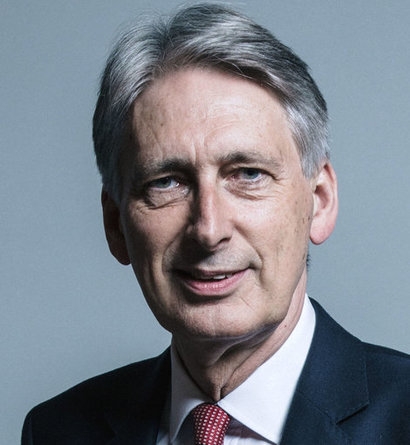
Mr Hammond announced that the government will introduce legislation to support the transition to zero emission vehicles, particularly by supporting the roll-out of charging infrastructure. The government will invest £200 million, to be matched by private investment, into a new £400 million Charging Investment Infrastructure Fund and will commit to electrify 25 percent of cars in central government department fleets by 2022.
Furthermore, the government will also provide £100 million to guarantee continuation of the Plug-In Car Grant to 2020 to help consumers with the cost of purchasing a new battery electric vehicle.
With regard to driverless cars, the government wants to see fully self-driving cars, without a human operator, on UK roads by 2021. It will therefore make world-leading changes to the regulatory framework, such as setting out how driverless cars can be tested without a human safety operator. The National Infrastructure Commission (NIC) will also launch a new innovation prize to determine how future roadbuilding should adapt to support self-driving cars.
From April 2018, there will also be no benefit in kind charge on electricity that employers provide to charge employees’ electric vehicles.
The Chancellor’s announcement was broadly welcomed by global technology company Eaton, whose Mobility Segment Leader EMEA, Delphine Clement, described it as ‘long overdue’.
“The Chancellor’s commitment to deliver on emission reductions by backing electric vehicles and boosting purchases of clean fuel cars is hugely welcome – albeit long overdue” said Ms Clement. “A lack of charging infrastructure has been a major barrier to adoption so far but supporting investment in this space will spur on the UK’s shift to electric vehicles. If combined with the development of a smart grid, this could go a long way to overhauling the transport sector in the UK, leading to a cleaner, greener Britain. It will be a key step if we are to achieve the clearly set out emission reduction targets”.
Ms Clement added that if transport is to play a leading role in climate change mitigation, the transport sector will need to undergo a fundamental transformation – and this will extend far beyond increased uptake of electric cars. The rapidly decreasing cost of battery storage as well as technological advances have made this large-scale transformation possible, if politicians, energy providers and the transport industry are willing to fully embrace this change. Energy storage can maximise green energy consumption, lower energy spend and even reduce the load on the grid at peak times. Clement said that although the Autumn Budget is a step in the right direction, the UK’s transport industry still has some way to go to reach carbon neutrality.
With regard to other areas of the renewable energy sector, the government announced it will continue to support low carbon electricity generation as it becomes more cost-competitive, including provision of up to £557 million for further Contracts for Difference (CfD). Since the government wants to keep energy costs as low as possible in order to protect consumers, it will not introduce new low carbon electricity levies until the burden of such costs are falling. This means, on the basis of current forecasts, that there will be no new low carbon electricity levies until 2025.
The Solar Trade Association (STA), however, criticized the Chancellor’s support for fossil fuels and lack of support for tax breaks for solar.
“It isn’t right that solar is being put at a disadvantage in the UK where it does not benefit from any of the tax breaks available to fossil fuels” said STA Head of External Affairs Leonie Greene. “The Chancellor recognises our economy has no future without a planet, but is bending over a North Sea barrel to offer fossil fuels even more tax breaks. Importantly, the Budget states that apart from honouring existing commitments, there will be no new public support for renewables that lead to an increase in consumer bills, until 2025. There is also no increase in carbon pricing, meaning no clear long-term signal for investors”.
“Let’s be clear” Ms Greene added, “the solar industry is not asking for any new public support – but we urgently need just some of the tax breaks available to fossil fuels today. And the whole energy industry needs a clear signal to continue to invest in low carbon power. We also believe solar can win effectively subsidy-free clean power (CfD) contracts today, so we now hope to see clean power auctions for established technologies resume on that basis. The Chancellor still has an opportunity to take a small step in the right direction by including solar under the eligible technologies list for Enhanced Capital Allowances in the Finance Bill, when it goes to the Commons.”
Image: The Rt Hon Philip Hammond MP, UK Chancellor of the Exchequer
For additional information:

